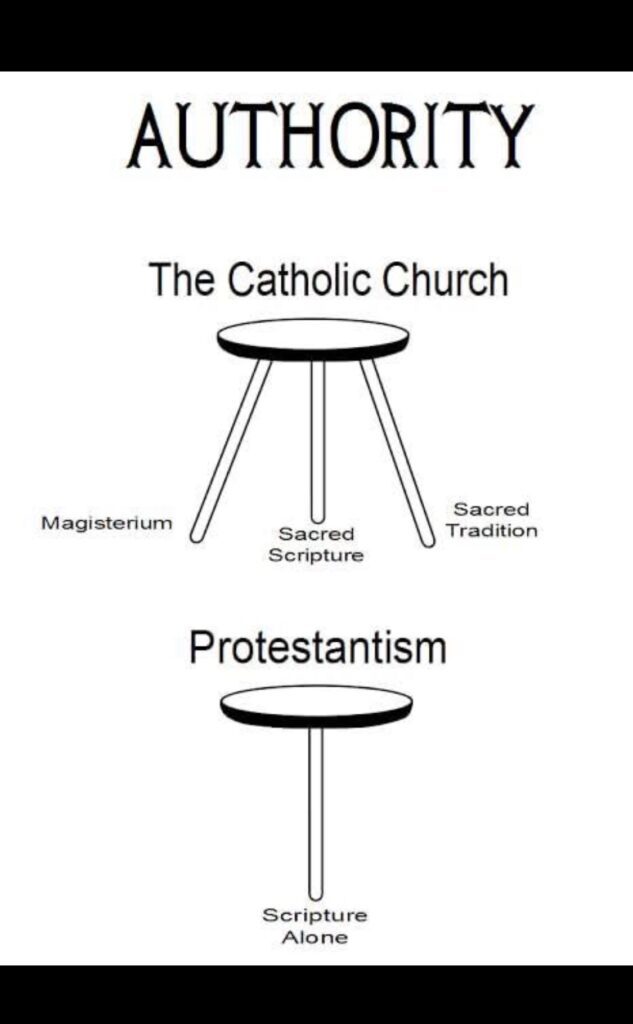By now we have all learned the rule that if a C S Lewis quote (or St. Augustine quote or a Martin Luther quote) doesn’t come with an actual citation, then it’s fake. In all things charity– except for imposter sourcing.
This problem goes beyond fake quotes though. There are so many fake slogans, catchphrases, and mnemonic devices in the world of church history, and they tend to take on a life of their own.
Once case in point is a recent tweet going around from “Catholic_bro.” He provides a graphic with a three-legged stool vs. a one-legged stool that attempts to contrast the Roman Catholic view of divine authority against the Protestant view of sola Scriptura:

Now this is goofy for a lot of reasons, but the first thing that came to my mind was, “Hey wait a minute! Isn’t the three-legged stool thing supposed to come from Richard Hooker?”
In the Anglican world, Richard Hooker supposedly appealed to the three-legged stool of Scirpture, tradition, and reason over and against the “Scripture alone” position of the Puritans. Of course, he never actually did this. Hooker advocated the same version of sola Scriptura that all of the other magisterial Protestants did, and the one that is in the 39 Articles. The three-legged stool is a fake slogan.
And now even the Catholics are taking it!
It’s not just the one tweet. If you google for “catholic” and “three-legged stool,” you’ll see plenty of Roman Catholic apologists using the metaphor. You’ll also see anti-Catholic writers using it. They think the three-legged stool is bad! The whole thing has metastasized and created a discourse of its own.
You see this all the time. How many books for and against TULIP are out there? And yet, the TULIP is a 20th century creation. Even worse, the “Five Solas” only date back to the 1960s or so. And yet today you’ll have people stressing out over whether they are only able to affirm three or four out of the five.
People love numbers and metaphors: three legs, five points, five solas, etc. It wouldn’t surprise me if the fixation on seven sacraments came about this way. After all, most of the early church fathers never limited the sacraments to that number.
And we can’t forget those famous seven councils. Why do we feel a need to highlight seven? From a Roman Catholic point of view, the councils never stopped. They’ve had many ecumenical councils since then. They had one in the 20th century. And various papal declarations can have equivalent status for their understanding of authority. Among Anglicans, the commonly called “seventh council” was never received. Instead, you would hear reference to four councils. One canon, two testaments, three creeds, four councils, and five centuries– so the older meme went.
And yet that number seven holds such power over people. Anglicans will twist themselves into knots in order to find a way to affirm the big seven, even to the point of rejecting or subordinating their own Anglican formularies to do so.
Memes and slogans and graphics are all important. Advertising is real. Persuasion matters. But we can’t leave things there. Catechesis must go deeper. And when certain constructs create more problems than solutions, we need to let them go.
These things aren’t going to be going away in our lifetime or in our kids’ lifetimes, but hopefully we can at least get a few of our people to stop caring about them.
Citation plz
Or it never happened
